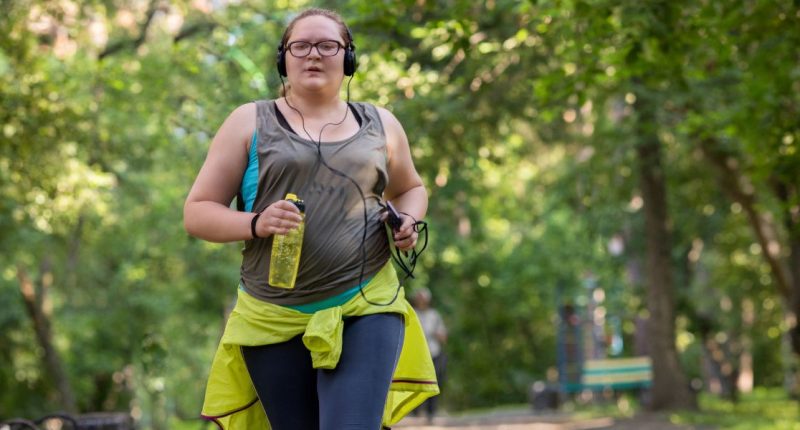- Runners who sleep badly are almost twice as likely to pick up an injury
- Short sleep, poor quality sleep and frequent sleep problems all increase risk
A team led by Professor Jan de Jonge, a work and sports psychologist based in the Netherlands and at the University of South Australia, looked at how sleep and injuries are linked in everyday runners.
They surveyed four hundred and twenty five recreational runners about their usual sleep and any injuries over the previous year.
Runners who reported short nights, poor quality sleep or regular sleep problems were almost twice as likely to have been injured as runners who generally slept well.
In numbers, poor sleepers were about one point seven eight times more likely to report an injury, and their chance of getting hurt over twelve months was around sixty eight percent. This was published in the journal Applied Sciences.
Millions of people run regularly, often early in the morning before work.
The message from this study is blunt. If you lace up after a run of bad nights, you are stacking the odds against yourself.
- Runner with type 1 diabetes qualifies for the Olympic Marathon Trials
- Mediterranean-style diet paired with moderate exercise significantly reduces type 2 diabetes risk
Why sleep matters so much for runners
Running puts repeated stress through joints, muscles, tendons and bones.
With the right balance of training and recovery the body adapts and becomes stronger. Sleep is a big part of that recovery.
While you are asleep the body repairs tiny amounts of damage in tissues, balances hormones and restores concentration and reaction time.
When sleep is too short or broken, those repairs are less effective. Hormones that control growth, stress and appetite shift in the wrong direction. You are more prone to mistakes, tripping, poor movement patterns and overuse problems.
In this study, the runners who struggled to fall asleep, woke frequently in the night or rarely felt rested in the morning were the ones who reported the most injuries. Those with steady sleep routines and who felt refreshed tended to stay injury free.
- Brain microbleeds triggered by sleep apnoea
- Physical activity levels higher among people who go to sleep early
For people living with diabetes, poor sleep has an extra layer of impact.
Lack of sleep can raise blood glucose, increase hunger and make self management harder. Combine that with a higher risk of running injuries and it becomes clear that sorting out sleep is not a luxury, it is part of looking after your health.
Putting sleep alongside your training plan
The researchers argue that runners and coaches need to give sleep the same attention they give training plans and sports nutrition.
More training is not always better if it means sacrificing rest.
In many cases, especially if you juggle work, family and social commitments, you may actually need more sleep than average adults to recover from running.
Most adults are advised to aim for seven to nine hours of sleep each night.
- MPs debate a bill to improve support for people with diabetes in sport
- Focus on sport turning children off from exercise
Runners in heavy training often benefit from a little more, and short daytime naps can help during busy periods.
If your sleep is not great, simple changes can help:
- Keep a regular bedtime and waking time, even at weekends, so your body clock knows what to expect
- Keep screens out of the bedroom and switch off phones, tablets and laptops at least an hour before bed
- Go easy on caffeine later in the day and try to limit alcohol, which can fragment sleep even if it makes you feel sleepy at first
- Make your bedroom dark, cool and as quiet as possible
If you snore loudly, wake up choking, or feel excessively sleepy in the day, speak to your GP, as you may have an underlying sleep disorder that needs treatment.







